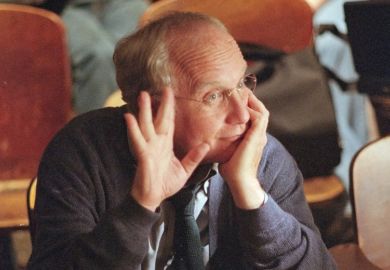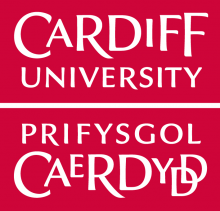According to the BBC, Alan Shearer, the former England footballer, is paid nearly £450,000 a year as a pundit on Match of the Day.
I recently provided an interview for BBC World. It was one of many that I have done for the channel over the years. I was called in the morning and I found a slice of time between finishing a lecture and meeting with one of my PhD students, during which a taxi whisked me to the Llandaff studios in Cardiff. I was then ushered quickly into the newsroom and found myself perched unsteadily on a high stool. A strong, direct light glared into my face. An earpiece was precariously attached. With no sight of my interviewer, I had to stare directly into the camera, mounted on top of a filing cabinet, and await my moment to go live to millions of hotel rooms around the world. The hubbub of the newsroom continued around me, but I had to focus.
When my moment finally arrived, I tried to answer the questions. Accurately. Without preparation. Using the accumulated wisdom and knowledge of my years studying the global automotive industry. It was a high-pressure performance demanding brevity, clarity and calmness. And it was entirely unpaid.
Shearer was a tremendous player, and still holds the record for the most goals scored in the Premier League. He also has some interesting things to say about games of football, but while Match of the Day is recorded live, it is a prepared environment, with which he is very familiar. And his only qualification is his 18 years of professional experience.
I, on the other hand, have a BA, MSc and PhD, as well as 30 years’ experience of studying my subject. And while Shearer could reasonably claim to know a lot about football, I am recognised as one of the UK experts on the automotive industry.
Like many academics, I see donating my time and insights as a way of “giving back” to the society that ultimately pays my wages. However, being involved in the media is still all too often regarded by university management as trivial: a distraction from the core tasks of writing journal articles or teaching students. It does not count as impact or engagement. Nobody in academia ever got promoted on the basis of their television appearances. Hence, interviews have to be squeezed in between our standard work commitments; I am a fan of the BBC Radio 5 Live slot at 5.30 in the morning because I can get into the studio and back before my children wake up for breakfast and the school run.
It is true that the occasional academic makes a breakthrough and becomes a media personality in their own right. Even now, the BBC series The Ascent of Man, presented by mathematician and science historian Jacob Bronowski, remains in my memory from the time I watched it as a child (it was first broadcast in 1973). And, today, British screens are graced by the well-known likes of Alice Roberts, Brian Cox and Mary Beard. But what of their countless fellow academics, offering up their own comment and analysis?
It is also true that academics are not forced into television work – and, personally, I enjoy the tension it involves. Moreover, it is something tangible to which family and friends – who are often puzzled by what it is exactly that we do – can relate.
But academics have value to the media. As neutral observers, we often provide more informed and, sometimes, more objective views than do the politicians, company bosses, shop stewards and activists. We can talk about the bigger picture, the long-term implications and the unexpected consequences.
Apparently, however, we are not “talent”; we are only “contributors”, and “contributors” are not paid – except, if we are lucky, expenses. But why? Everybody else participating in the broadcast is paid: the camera crews, the back-office technicians, the story research teams. None of these groups are classified as “talent” either. Even the extras mumbling nothing in the background of a scene for EastEnders are paid a defined rate. It is tempting to conclude that contributors miss out only because we don’t have a trade union to represent us, via which we can collectively threaten to withdraw our labour.
It really doesn’t seem fair. Every time we go on air – on television or radio – we put our professional reputations on the line. A mistake or a factual error, so easy to make in the heat of the moment, can be devastating. Under the relentless gaze of the camera, the slightest personal foible or hesitation in delivery is magnified. It takes confidence and resilience to go out there, time and again.
I don’t begrudge Alan Shearer his salary. It is not for me to say whether that eye-watering amount is what it takes to prevent him from defecting to Sky. I would merely observe that broadcasters are clearly willing to pay for contributions that they value if they have no other choice. So maybe it is time we unsung talking heads started talking money, too.
Peter Wells is head of the Logistics and Operations Management Section, director of the Centre for Automotive Industry Research and professor of business and sustainability at Cardiff University’s Cardiff Business School.
POSTSCRIPT:
Print headline: We are valued, so pay us
Register to continue
Why register?
- Registration is free and only takes a moment
- Once registered, you can read 3 articles a month
- Sign up for our newsletter
Subscribe
Or subscribe for unlimited access to:
- Unlimited access to news, views, insights & reviews
- Digital editions
- Digital access to THE’s university and college rankings analysis
Already registered or a current subscriber?










